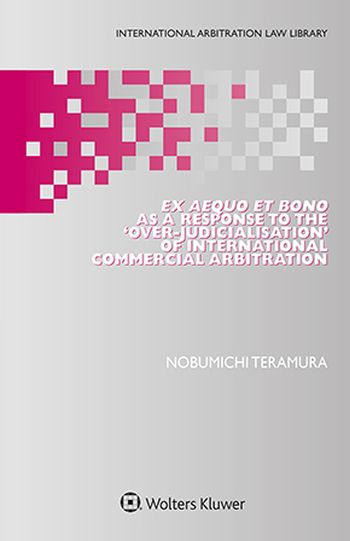
'Ex Aequo et Bono' as a Response to the ‘Over-Judicialisation’ of International Commercial Arbitration investigates significant divergence in the understanding of ex aequo et bono across state jurisdictions and international arbitration institutions and analyses the core trends in actual legal practice and in thinking about the principle. Despite its many distinguished proponents over time, ex aequo et bono – the idea of deciding disputes on the basis of what an adjudicator regards as fair and equitable – has failed to take hold in international commercial arbitration (ICA). Formalisation and fossilisation of arbitral procedure, as manifested in the increasing use of litigation-style practice, unfortunately reign instead. This bold and challenging book argues that parties to an arbitration should be more willing for their cross-border disputes to be decided (and arbitrators should be more prepared to decide those disputes) in accordance with broad principles of equity and fairness, rather than by strict adherence to technical rules of law.
What’s in this book:
Putting forward suggestions based on an extensive research and doctrinal considerations, this book invites us to confront what ICA was supposed to be, what it now is and what it can be. In particular, the author discusses how, by resorting to ex aequo et bono, arbitrators can:
This book suggests that the flexibility inherent in ex aequo et bono needs to be both re-evaluated and rejuvenated. It urges the international arbitration community to adopt a revitalised conception of ex aequo et bono to counter-balance the encroaching ‘over-judicialisation’ of arbitration.
How this will help you:
The book examines significant differences in the way that ex aequo et bono arbitration is understood among various state and international institutions. It attempts to identify a ‘common core’ of universally accepted concepts underlying those different understandings. This book discusses the implications of ex aequo et bono arbitration on the now widely used UNCITRAL Model Law on ICA. It should thus appeal to lay business persons and commercial law practitioners who are looking for an economical and efficient way to solve business disputes within a globalised arbitration framework and students in arbitration courses.